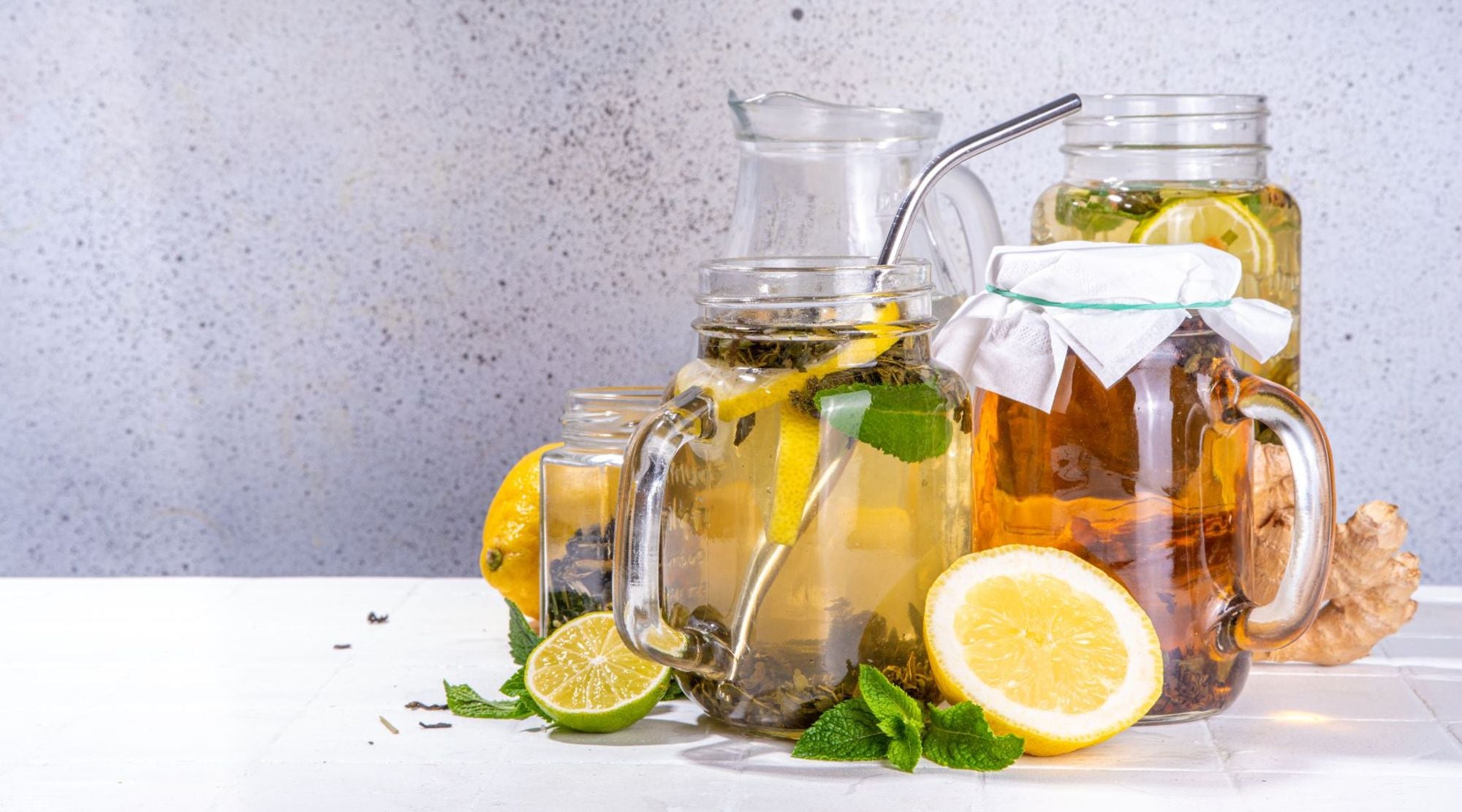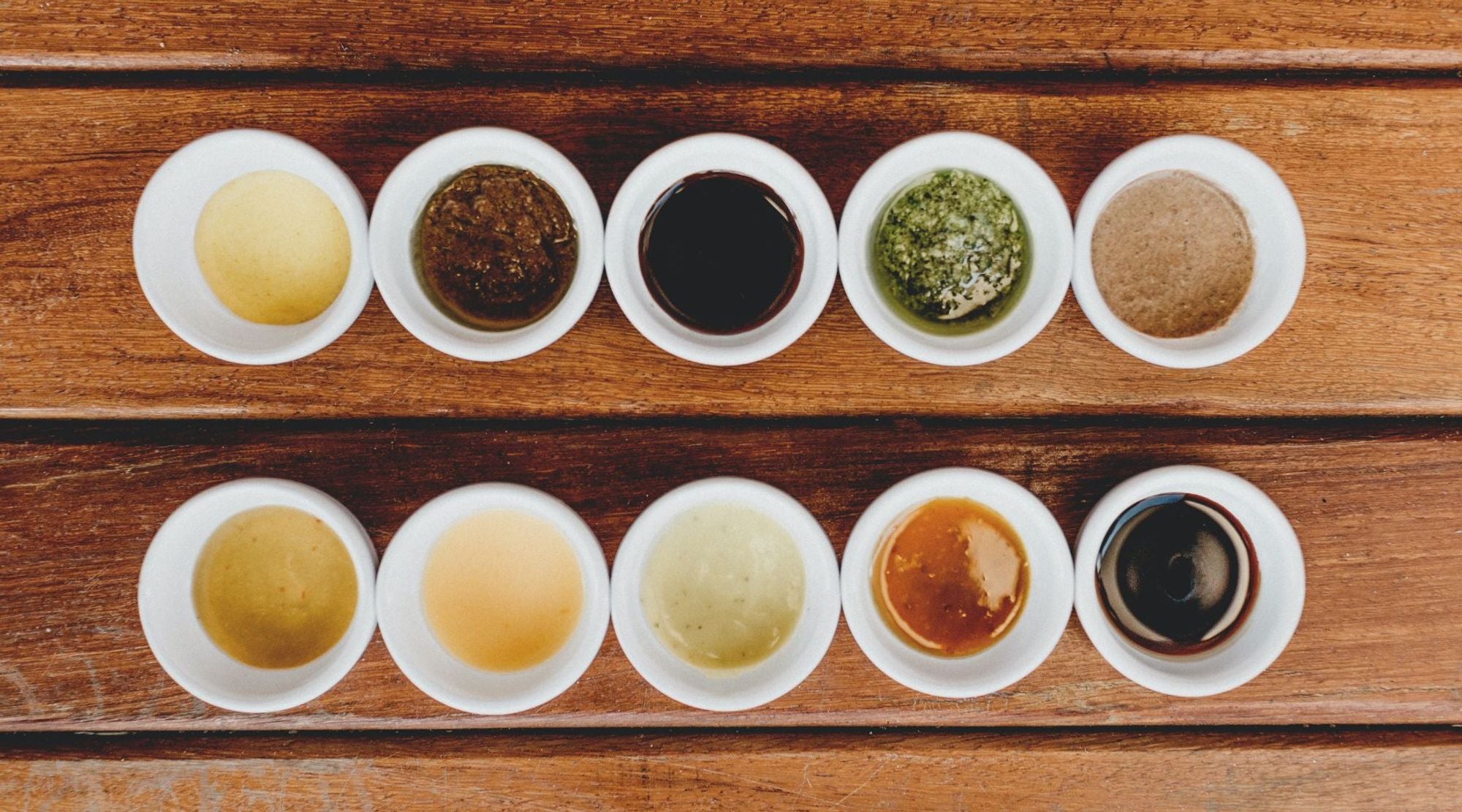
Is Tea Healthy? The Truth About Your Favorite Brew
We all have that friend who's obsessed with tea—whether it's a classic Earl Grey, a refreshing mint, or a trendy matcha latte, they always have a cup in hand. But have you ever wondered, "Is tea healthy?" You’re not alone! Tea has been a beloved beverage for centuries, celebrated for its comforting warmth and diverse flavors. But beyond its role as a cozy companion, tea is often touted for its potential health benefits. So, let's steep ourselves in the facts and find out if tea is really the wellness elixir it’s made out to be!
The Antioxidant Powerhouse: Why Tea Might Be Good for You
First things first—tea is loaded with antioxidants. These little warriors are like the body’s internal clean-up crew, fighting off free radicals that can cause oxidative stress and damage cells. You’ve probably heard of antioxidants like catechins and flavonoids, which are abundant in many types of tea, particularly green tea.
Green tea, in particular, is praised for its high concentration of epigallocatechin gallate (EGCG), a potent antioxidant that may help reduce inflammation, promote heart health, and even aid in weight management. So, if you're sipping on a cup of green tea, give yourself a little pat on the back—you’re doing something great for your body!
But Wait, There's More: Black, White, and Herbal Teas
While green tea often gets the spotlight, black and white teas also pack a punch. Black tea, with its bold flavor, contains theaflavins and thearubigins, antioxidants that can support cardiovascular health. White tea, the least processed of all, retains a high amount of catechins, which are believed to have cancer-fighting properties.
And let’s not forget about herbal teas! Though technically not "tea" (since they don't come from the Camellia sinensis plant), herbal infusions like chamomile, peppermint, and rooibos bring their own set of benefits. For example, chamomile tea is known for its calming effects, making it a perfect bedtime beverage, while peppermint tea can aid digestion.
Can Tea Boost Your Brain Power?
You might be wondering, "Can my morning cup of tea really make me smarter?" Well, kind of! Tea contains a unique amino acid called L-theanine. This compound works wonders when paired with caffeine (which, yes, is also found in tea). Together, they can enhance cognitive function, improve focus, and give you a gentle energy boost without the jittery side effects often associated with coffee. So, next time you need to power through a work project or cram for an exam, consider reaching for a cup of green or black tea!
Tea and Your Tummy: A Match Made in Heaven
We’ve all experienced those days when our stomach feels like it’s been on a rollercoaster ride—enter tea! Many teas have been used traditionally to soothe digestive woes. Ginger tea, for example, is famous for its ability to ease nausea and settle an upset stomach. Meanwhile, peppermint tea is often recommended for alleviating symptoms of irritable bowel syndrome (IBS).
Tea’s benefits for the digestive system don’t stop there. Research suggests that polyphenols in tea can encourage the growth of good gut bacteria, contributing to a healthy microbiome. So, your tea-drinking habit could be helping your gut flourish—cheers to that!
The Skinny on Tea and Weight Loss
If you're trying to shed a few pounds, you might have heard whispers that tea can help. While it’s not a magic potion, tea, particularly green tea, may assist with weight loss when combined with a balanced diet and regular exercise. The caffeine and catechins in green tea can slightly boost metabolism and increase fat oxidation. However, don't expect to see results overnight—consider tea as a supportive friend on your weight loss journey, not the entire plan.
Are There Any Downsides to Drinking Tea?
Of course, even the best things in life have their downsides if overdone, and tea is no exception. Here are a few things to watch out for:
- Caffeine Content: While tea generally has less caffeine than coffee, it can still cause insomnia or jitters if you’re sensitive to it or consume it in large amounts. Herbal teas, however, are caffeine-free and a great alternative for a calming beverage.
- Tannins and Iron Absorption: Tannins in tea can interfere with the absorption of non-heme iron (the type of iron found in plant-based foods). If you have iron deficiency anemia, it's wise to avoid drinking tea with meals.
- Added Sugars and Calories: If you love sweetened or flavored teas, be mindful of the added sugars. They can turn a healthy beverage into a not-so-healthy one pretty quickly. Opt for unsweetened teas or natural sweeteners like honey if you want to keep things healthy.
- Potential for Teeth Staining: Frequent tea drinkers might notice their teeth becoming a bit discolored over time. This is due to the tannins in tea, which can stain teeth. Regular dental hygiene and occasionally switching to lighter teas can help mitigate this.
Making Tea a Part of Your Healthy Lifestyle
If you’re looking to reap the benefits of tea, here are a few tips to keep in mind:
- Choose Quality Over Quantity: Opt for loose-leaf teas or high-quality tea bags. These typically contain more of the beneficial compounds than their lower-quality counterparts.
- Mind Your Brew Time: Over-steeping can make your tea bitter and may reduce its antioxidant levels. Most teas should be steeped for 3-5 minutes—check the packaging for specific recommendations.
- Experiment with Flavors: The world of tea is vast and varied. Don’t be afraid to try different types to find your favorites. Whether it’s a robust black tea in the morning, a soothing chamomile before bed, or a fruity herbal blend for a midday pick-me-up, there’s a tea out there for every mood and moment.
Conclusion: So, Is Tea Healthy?
In a nutshell, yes—tea can be a healthy addition to your diet, especially when consumed mindfully and in moderation. It's packed with antioxidants, can boost brain function, support gut health, and might even help with weight management. But, as with anything, balance is key. So, go ahead and enjoy that cup of tea, knowing that you’re doing something good for your body. Cheers to that!


